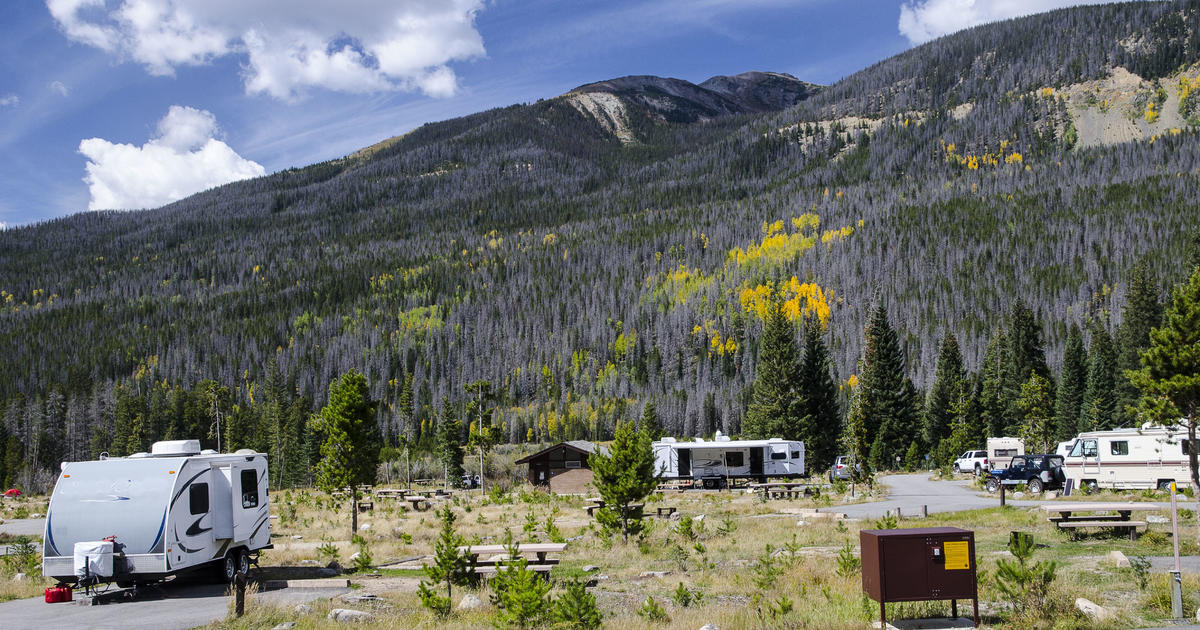Report: Mesa Verde Among U.S. Landmarks Threatened By Climate Change
DENVER (CBS) -- Major historical landmarks across the U.S. are at risk from the impacts of climate change, with locations such as the Statue of Liberty and Mesa Verde National Park threatened by factors including rising sea levels and wildfires.
According to a report, "National Landmarks at Risk," released Tuesday by the Union of Concerned Scientists (UCS), there are 30 at-risk sites where the effects of climate change are threatening to destroy some of the country's oldest historical landmarks.
"Sea-level rise, coastal erosion, increased flooding, heavy rains and more frequent large wildfires are damaging archaeological resources, historic buildings and cultural landscapes across the nation," says the report.
Maryland's Harriet Tubman Underground Railroad National Monument, Florida's Castillo de San Marcos and Jamestown – the first permanent English settlement in the Americas -- are likely to be either completely or partially submerged by 2100.
"Most" U.S. naval bases are at or below sea level, the report notes.
"You can almost trace the history of the United States through these sites," Adam Markham, director of climate impacts at UCS and a co-author of the report, said in a statement. "The imminent risks to these sites and the artifacts they contain threaten to pull apart the quilt that tells the story of the nation's heritage and history."
Sites in the West and southwestern United States are at risk from wildfires and floods, which the UCS report says is being made worse by climate change.
"During the last decade and a half, massive fires have swept through Mesa Verde National Park and Bandelier National Monument and other southwestern sites, damaging ancient pueblo masonry, petroglyphs and pottery," said Markham, of Colorado's park that protects almost 5,000 known archaeological sites, including 600 cliff dwellings.
"Heavy rains and the extraordinary floods that have followed some of these fires have caused even more damage, destroying trails, damaging adobe buildings and washing away vital archaeological resources. These sites face huge risks as the climate continues to change."
The report recommends that increased efforts are made to protect historic sites by making them more resilient to the destructive effects of climate change. Efforts are being made at the Statue of Liberty, the U.S. Naval Academy in Annapolis, Md., and the Cape Hatteras Lighthouse, in Buxton, N.C., which the National Park Service moved further inland to save the area from rising sea levels.
"To slow the rate of change and give archaeologists, historic preservationists and land managers more time to protect these sites, carbon emissions must be reduced," according to the report, which also recommends that Congress should fund President Obama's proposed Climate Resilience Fund to assist local municipalities in making businesses more resilient to climate change.
"Cutting carbon emissions significantly and quickly can slow the pace of sea level rise, limit the temperature increases, and slow the expansion of the wildfire season," said Angela Anderson, director of the Climate and Energy Program at UCS. "The fund could also be used to help protect and preserve the nation's iconic and historical landmarks and irreplaceable archaeological treasures that are being destroyed by sea level rise, wildfire and flooding."
But not everyone is convinced of climate change's impact on these U.S. landmarks.
"There is a tendency to confuse the impacts of climate with the impacts of human-caused climate change," Chip Knappenberger of the Cato Institute, a free-market think tank in Washington, tells USA Today. "This most certainly is taking place in the UCS report. Most of the examples in the report are located in areas where the extremes of the natural climate pose significant threats and expose vulnerabilities."



